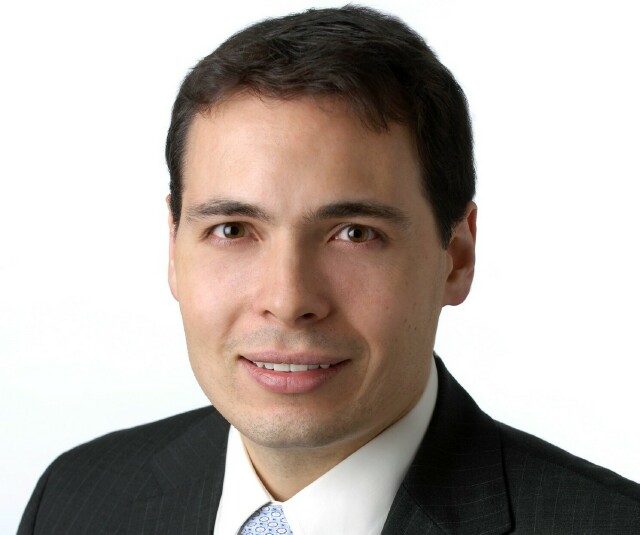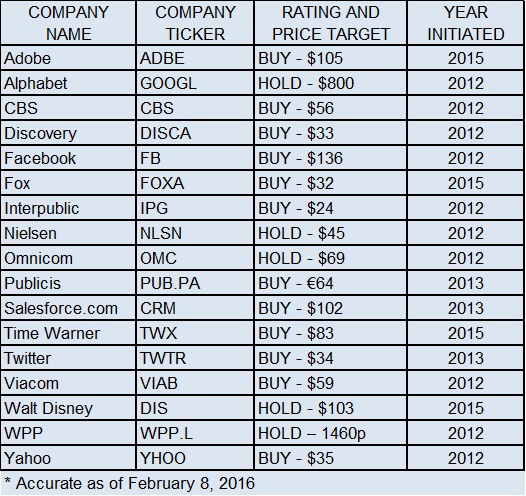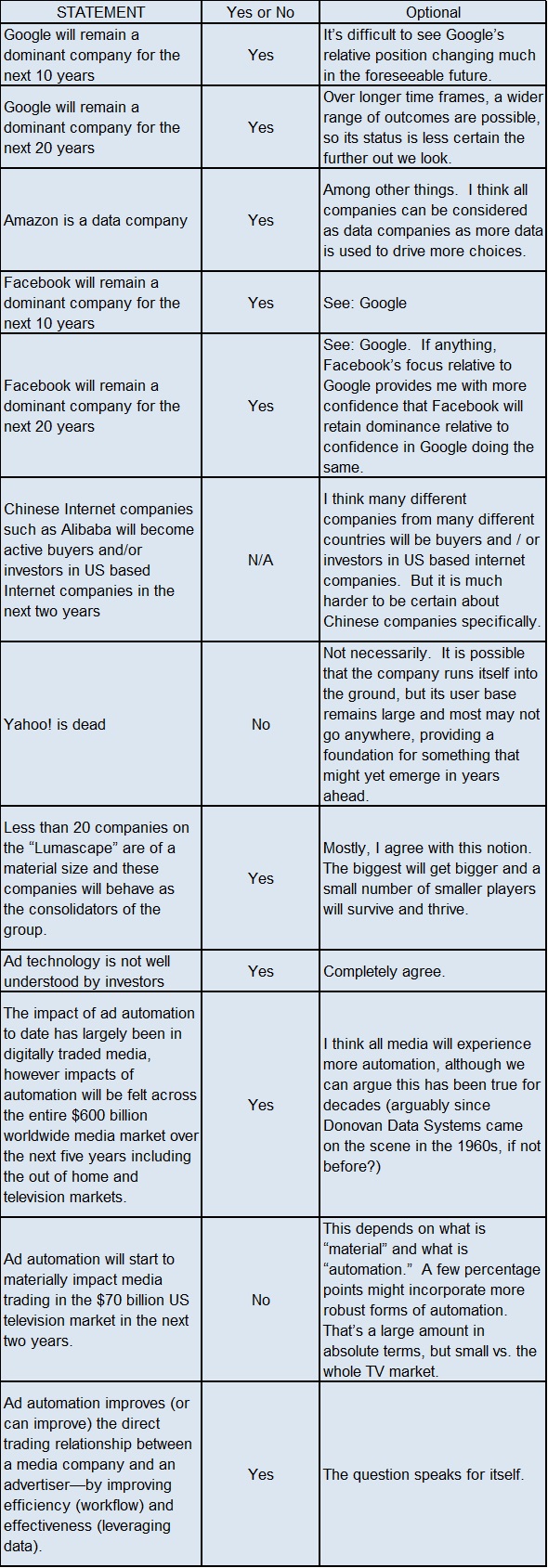Pivotal Research’s Brian Wieser on Ad Technology and 2016 Trends

Jay Sears, Senior Vice President Marketplace Development of Rubicon Project discusses ad technology and 2016 trends with Pivotal Research’s Senior Analyst Brian Wieser.
(Editor's Note: This is the final installment in a three-part series. Be sure to read Jay's interviews with Dan Salmon of BMO Capital Markets and Youssef Squali of Cantor Fitzgerald.)
YOUR NAME:Brian Wieser
YOUR COMPANY:Pivotal Research
YOUR TITLE:Senior Analyst
SEARS: What do you read to keep up with politics, art and culture?
WIESER: The Economist, Wall Street Journal, New York Times, Willamette Week
SEARS: What do you read to keep up with friends?
WIESER: Facebook and Twitter
SEARS: What do you read to keep up with the advertising technology industry?
WIESER: Wall Street Journal, Ad Age, AdExchanger, Digiday, ExchangeWire, Ad-Exchange.Fr
SEARS: What’s your favorite commercial of all time?
WIESER:Metro Trains Melbourne – “Dumb Ways to Die”
SEARS: With regards to advertising automation, what are the three biggest trends you expect to impact companies in 2016?
WIESER:
- More focus on premium inventory
- More focus on viewable and ‘bot-free inventory
- Continuing rise in use of DMPs by advertisers, agencies and marketers alike
SEARS: With regards to advertising automation, what are the three most overblown topics that you wish would just go away?
WIESER: I think there are buzzwords that might be overused or mis-used or used to suit the speaker or writer’s purpose (see: “native”), but there is still a lot of education to be done among the industry and investors alike, so I might suggest there aren’t any overblown topics at this time (unlike something like “death of TV,” which is simply an overblown topic).
SEARS: Tell us your coverage universe.
WIESER:

SEARS: The majority of ad technology companies has not performed well in the public markets. Of the poor performers, what are the commonalities between them that have contributed to this weakness?
WIESER: Small absolute size is the single most important issue. Small size means that companies are mostly not well positioned to compete against the industry’s monoliths and also illustrate that these are early stage companies, which is to say that while some might succeed, most will not. Small size also means that investors struggle to justify investing the time required to understand a confusing sector, even for many experts. This results in more punting than investing, which in turn leads to momentum driven trading.
SEARS: A smaller handful of ad technology companies has performed better than the rest. What are the commonalities between them that have contributed to this relative strength?
WIESER: I think that outperformance can be explained by company specific circumstances. For example, customer segment focus and product quality vs. alternatives for those customer segments can support an awful lot of growth, at least for a while.
SEARS: Do we live in a “tale of two cities” where Google and Facebook win almost everything, advertisers are dictated to and other media companies fight for the scraps?
WIESER:Mostly, yes. Digital advertising is a scale game. Brands look to concentrate the bulk of their spending with a limited number of partners; size also facilitates the use of more data to drive performance for e-commerce-based marketers.
SEARS: Please answer the following statements yes or no.
WIESER:

SEARS: If you could go to the airport right now with friends or family and fly anywhere in the world for vacation, who would you take and where would you go?
WIESER:Anywhere between southwest France and northeast Spain with my wife and two children. Fantastic food, culture and history that we have barely begun to explore.
SEARS: If you could create an endowment to fund any existing non-profit you designated, what lucky non-profit organization would that be?
WIESER: Rather than focus on a specific organization I think there are causes and public policies that I would focus on, such as financial literacy and efforts to improve economic welfare for people around the world over longer time horizons.
SEARS: What is your favorite restaurant in the world?
WIESER: Top of mind right now is Portland’s Laurelhurst Market, which happens to be in my neighborhood in Portland, Oregon. It was ranked No. 5 on the Wall Street Journal’s list of “20 Great Modern Meateries” in 2013 and still lives up to the bill today.
SEARS: Thanks, Brian!
The opinions and points of view expressed in this commentary are exclusively the views of the author and do not necessarily represent the views of MediaVillage/MyersBizNet management or associated bloggers.


